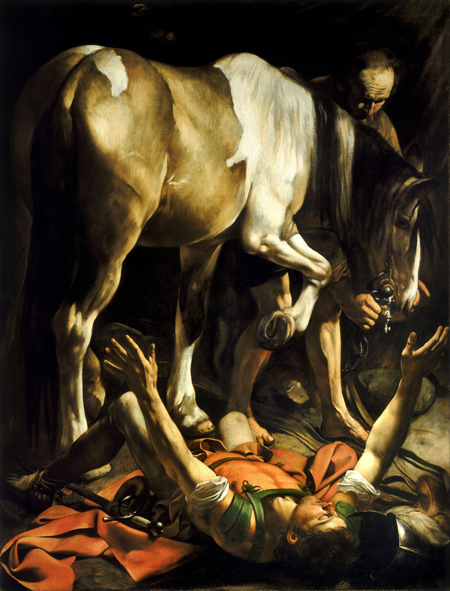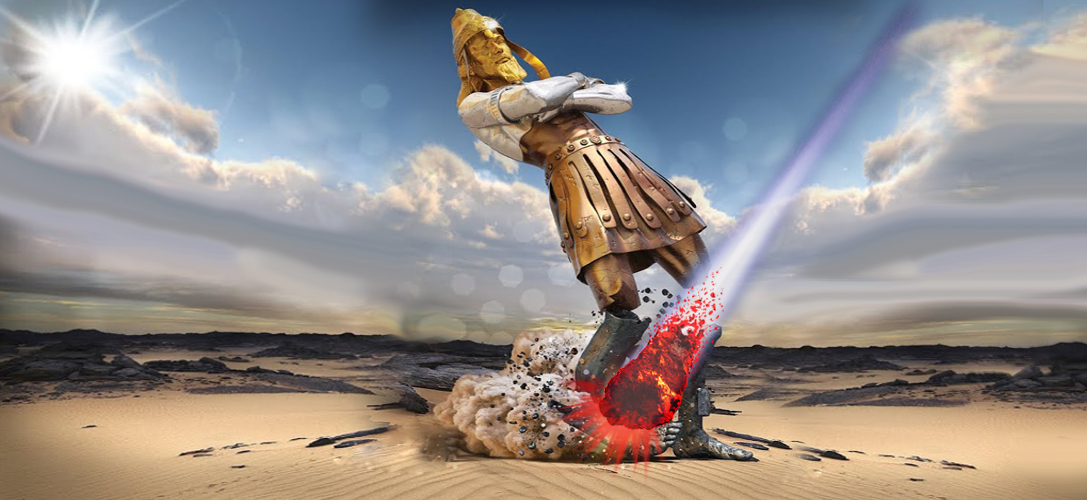
|
This is a non-WLC article. When using resources from outside authors, we only publish the content that is 100% in harmony with the Bible and WLC current biblical beliefs. So such articles can be treated as if coming directly from WLC. We have been greatly blessed by the ministry of many servants of Yahuwah. But we do not advise our members to explore other works by these authors. Such works, we have excluded from publications because they contain errors. Sadly, we have yet to find a ministry that is error-free. If you are shocked by some non-WLC published content [articles/episodes], keep in mind Proverbs 4:18. Our understanding of His truth is evolving, as more light is shed on our pathway. We cherish truth more than life, and seek it wherever it may be found. |
According to my heartfelt “dispensational” background (for decades), the “kingdom/king” vocabulary of the four gospels was outdated doctrine purely for ancient Israelites. Still, it had nothing to do with Christians. How wrong I was!
 “The lord said [to Saul of Tarsus], ‘I am Yahushua, whom you are persecuting. But get up on your feet. I have appeared to you for this purpose: to appoint you a servant and a witness, both of the things you have seen and the things I will reveal to you. I will rescue you from your own people and from the Gentiles to whom I am sending you, to open their eyes so that they may turn from darkness to light, and from the domain of Satan to Yahuwah, so that they may receive forgiveness of sins and an inheritance among those who are made holy by faith in me’” (Acts 26:15b-18, OGF*).
“The lord said [to Saul of Tarsus], ‘I am Yahushua, whom you are persecuting. But get up on your feet. I have appeared to you for this purpose: to appoint you a servant and a witness, both of the things you have seen and the things I will reveal to you. I will rescue you from your own people and from the Gentiles to whom I am sending you, to open their eyes so that they may turn from darkness to light, and from the domain of Satan to Yahuwah, so that they may receive forgiveness of sins and an inheritance among those who are made holy by faith in me’” (Acts 26:15b-18, OGF*).
Among other realities (“the things which I will reveal to you”) which Yahushua himself communicated to Saul (or Paul) must have been the one authentic Gospel of the Kingdom of Yahuwah. As Paul wrote, “The Gospel I preached is not from people. I did not receive it from people, nor was it taught to me, but it came through a revelation of Yahushua Messiah” (Gal. 1:11b-12).
Modern theologians tend to separate “the Gospel of the grace of Yahuwah” from “the Gospel of the Kingdom.” Still, Paul firmly united such phrases as mutually reflective of the one true Gospel in Acts 20:24-25! The genuine Gospel is one, and forceful curses are pronounced on those who would distort or pervert “the Gospel as the Messiah preached it” (Gal. 1:6-9).
There is no Scriptural doubt whatsoever that Paul avidly preached the same Gospel of the Kingdom of Yahuwah (Acts 14:22; 19:8; 20:24-25; 28:23, 31), which his lord Yahushua, the Anointed One, had been the forerunner in proclaiming (Heb. 2:3; Mark 1:1, 14-15). Far from being a dusty relic from a previous “dispensation,” the Gospel of the Kingdom of Yahuwah was extraordinarily vital and pertinent (something to be urgently persuasive: Acts 19:8) for the thirty years or so that span the book of Acts. It is still the vital standard for faithful preaching!
Furthermore, it is this very Gospel which must be preached until the end of this current age: “This Gospel of the Kingdom will be preached around the whole world as a testimony to all the nations, and then the end will come” (Matt. 24:14). The “end” of course means “the end of the age” as in the context (v. 3, 6). If dubious, defective theologies have permeated all corners of the world, it is time to replace them with the Gospel!
Even though it is popular nowadays to sharply distinguish traditional interpretations of Pauline theology from Yahushua’s teachings, Paul himself never contrasted his understanding of the Gospel with the sound, wholesome words of our lord Yahushua Messiah: “If anyone teaches other doctrines and does not agree with the health-giving words, namely the teaching of our lord Yahushua Messiah, and thus with the teaching which promotes godliness, he is conceited, understanding nothing” (1 Tim. 6:3-4a).
The word “anointed” or “Messiah” (in Hebrew Mashiach; in Greek Christos) is used in the Old Testament for consecrated priests and also for anointed kings (like Saul and David). Only three times is it used prophetically of a unique “Messiah” or an “Anointed One” to come!
After Hannah wrestled with anguished prayers (and finally got pregnant) and began raising Samuel, her firstborn son, whom she dedicated to the service of YAHUWAH, she poured out a heartfelt prayer of thanksgiving in 1 Samuel 2:1-10. A dynamic, prophetic picture emerges at the end of her powerful prayer!
“He raises up the poor from the dust [cp. Dan. 12:2]; he lifts the needy from the ash heap to make them sit with princes and inherit a seat of honor. For the pillars of the earth are the LORD’S, and on them, he has set the world. He will guard the feet of his faithful ones, but the wicked shall be cut off in darkness, for not by might does one prevail. The LORD! His adversaries shall be shattered; the Most High will thunder in heaven. The LORD [YAHUWAH] will judge the ends of the earth; he will give strength to his king, and exalt the power of his anointed” (1 Sam. 2:8-10, NRSV).
So at a time of future judgment when YAHUWAH’s enemies “will be shattered,” “He will give strength to His king and exalt the power of His anointed.”

This vivid picture, including the shattering of Yahuwah’s adversaries, is later developed in much greater depth in the first Messianic Psalm, Psalm 2, which paints a beautiful portrait of who the Messiah would be:
“Why have nations crowded together, and people murmur about something empty? Earth’s kings take a stand, leaders make plans together, against Yahuwah and against his anointed — ‘We’ll break off their means of discipline, throw off their ropes from us.’ The one who sits in the heavens makes fun; the Lord ridicules them. Then he speaks to them in his anger, terrifies them with his rage. ‘But I myself installed my king on Tsiyyon [Zion], my sacred mountain!’ I shall recount Yahuwah’s decree: he said to me, ‘You’re my son; today I myself have fathered you. Ask of me, and I’ll make nations your domain, earth’s ends your holding. You’ll smash them with an iron club, shatter them like an object made by a potter.’ So now, show some insight, you kings; accept discipline, you people who exercise authority in the earth. Serve Yahuwah with awe, rejoice with trembling, surrender sincerely so that he doesn’t get angry and you perish as regards the way, because his anger will soon burn up; the blessings of all who take shelter with him!” (Ps. 2:1-12).
One can notice quickly in Psalm 2 that Yahuwah’s anointed is also His designated king on Zion, parallel to Yahuwah’s king being His exalted anointed in 1 Samuel 2:10. In addition, Psalm 2 clarifies that this king/anointed one would be Yahuwah’s Son — “fathered” by Yahuwah “today.”
The third (and last) passage in which the prophesied anointed or the Messiah (who is also called “the Prince” here) is specifically designated as such is Daniel 9:24-27. The prophecy here includes the timing factor of seventy “sevens” (490 years), with past events involving the first 69 of those “weeks” or “sevens” (483 years). After seven “sevens” plus sixty-two “sevens,” the Messiah would be “cut off” — the starting point being the restoring and rebuilding of Jerusalem (after its destruction by the ancient Babylonians). With accurate historical data, one can determine Messiah as “cut off” in the first century AD.
Of course, many other Old Testament prophetic passages correspond to this same Messianic picture (like Isaiah chapter 11) without the specific vocabulary of “anointed” or “Messiah” (or Christos [Christ] in the Greek Septuagint).
A brief note on vocabulary emphasis might be in order. The word “Christ” itself has become too commonplace in everyday speech, so to mentally translate it as the Christ, Messiah, or the Anointed One is entirely appropriate! Since it prophetically refers to an upcoming anointed king, one could even translate the term as “King”. Also, the term “fathered” or “begotten” used in Psalm 2:7 must be carefully understood. It means being engendered or produced biologically. One should not give in to the nonsensical jargon that Yahushua was “begotten, not made”! To be begotten is to be made! It is to be brought into existence! In the case of Yahushua being “fathered,” it was through Yahuwah’s miraculous intervention, not natural sexual activity.
When Yahushua himself frequently spoke of the “Kingdom of Yahuwah” (or “Kingdom of Heaven” at times, only in Matthew), to what was he referring? He stipulated that it was a Kingdom to come, in which Yahuwah’s will would be done perfectly on earth (as it is currently done in heaven, Matt. 6:10). He pointed to a time when the meek (or gentle) will inherit the earth (Matt. 5:5, a quote from Psalm 37:9, 11, 22, 29, 34). He even spoke directly to his murderous accusers about “the Son of Man sitting at the right hand of power and coming on the clouds of heaven” (Matt. 26:64, citing Ps. 110:1 and Dan. 7:13, 18, 22, 27). The powerful, futuristic emphasis on Yahuwah’s coming Kingdom and the glorious return of the “Son of Man” boldly permeates Yahushua’s Kingdom focus in the records of the gospels (Matt. 25:31; Luke 18:8, etc.). It is most probable that Yahushua’s very phrase “Kingdom of Yahuwah” is a direct allusion to Daniel 2:44 (cp. Obad. 21; Mic. 4:7-8):
“In the days of those kings [the statue’s feet], the God of heaven will set up a kingdom that will never be destroyed, and this kingdom will not be left to another people. It will crush all these kingdoms and bring them to an end, but will itself endure forever. You saw a stone break off from the mountain without a hand touching it, and it crushed the iron, bronze, fired clay, silver and gold. The great God has told the king [Nebuchadnezzar] what will happen in the future. The dream is true and its interpretation certain” (Daniel 2:44-45).

To close our cursory overview of “the Gospel of the Kingdom of Yahuwah,” we will observe the prophetic words of the angel Gabriel in chapter one of Luke. Without really exaggerating, one could say that Gabriel preached to Mary the Gospel of the Kingdom of Yahuwah!
“And listen: you [Mary] will become pregnant and give birth to a son, and you will name him Yahushua. He will be very great, and he will be called the Son of the Most High. The Lord Yahuwah will give him the throne of his ancestor David, and he will be king over the house of Jacob forever; his Kingdom will never come to an end...Holy Spirit will come upon you, and the power of the Most High will overshadow you [two ways of referring to Yahuwah’s miraculous, creative action]. For that reason precisely the holy child to be fathered will be called the Son of Yahuwah” (Luke 1:31-33, 35).
The “today” of the fathering (begetting) of the Son of Yahuwah (in Ps. 2:7) is thus precisely designated as being on the day of Yahuwah’s miraculous fathering activity in Mary!
Sufferings and Glory (from a Kingdom Perspective) “For I am convinced that the sufferings of this present time are not worth comparing with the coming glory which is going to be revealed in us” (Rom. 8:18). “But we have this treasure [the light of the knowledge of the glory and Kingdom of Yahuwah] in clay jars so that the supreme greatness of the power will be from Yahuwah and not from ourselves. We are afflicted from every side but not crushed. We are perplexed but not in despair. We are persecuted but not forsaken. We are struck down but not destroyed. In our bodies, we always carry the dying of Yahushua so that the life of Yahushua may also be revealed in our bodies. For we who are living are constantly being delivered to death for Yahushua’s sake, so that the life of Yahushua may be revealed in our mortal bodies...So we do not lose heart. Even though our outer selves are decaying, our inner selves are being renewed daily. These light afflictions last for a little while, but they produce an incomparable weight of glory for the age to come. We do not look at the things seen now but at the things not seen, because the things seen are temporary, but the things not seen belong to the age to come” (2 Cor 4:7-11, 16-18). Quite clearly, to the degree to which we embrace the Kingdom hope of glory revealed in us in the age to come, we are preparing to mature now in our attitude towards present sufferings: “It is through many trials that we enter the Kingdom of Yahuwah” (Acts 14:22).

“My goal is to know him and the power of his resurrection and the fellowship of his sufferings, being conformed to his death, in the hope of attaining to the advance resurrection from among the dead persons” (Phil. 3:10; see Lk. 14:14; Dan. 12:2).
Our identity with the Messiah Yahushua involves suffering with him temporarily in the present while waiting patiently for the glorious, everlasting hope of the age to come!
This entire issue of unjust suffering boils down to cleaving to Yahushua’s early instructions in the Sermon on the Mount. It might sometimes be tempting to react to personal attacks with an edge of defensive pride. Still, if we are Yahuwah-fearing toward Yahushua’s teaching and example, we suffer with dignity and forgiveness (without bitter, sarcastic comments, etc.) while placing our sights squarely on his glorious return and the future resurrection of the age to come!
“Blessed are those who make peace, for they will be called children of Yahuwah. Blessed are those who have been persecuted for what is right because the Kingdom of Heaven is theirs. Blessed are you when people insult you and persecute you, and tell all kinds of evil lies against you because of me. Be happy and full of joy, because your reward in heaven is great, because they persecuted the prophets who came before you in the same way” (Matt. 5:9-12).²

This is a non-WLC article by Kenneth LaPrade.
We have taken out from the original article all pagan names and titles of the Father and Son, and have replaced them with the original given names. Furthermore, we have restored in the Scriptures quoted the names of the Father and Son, as they were originally written by the inspired authors of the Bible. -WLC Team